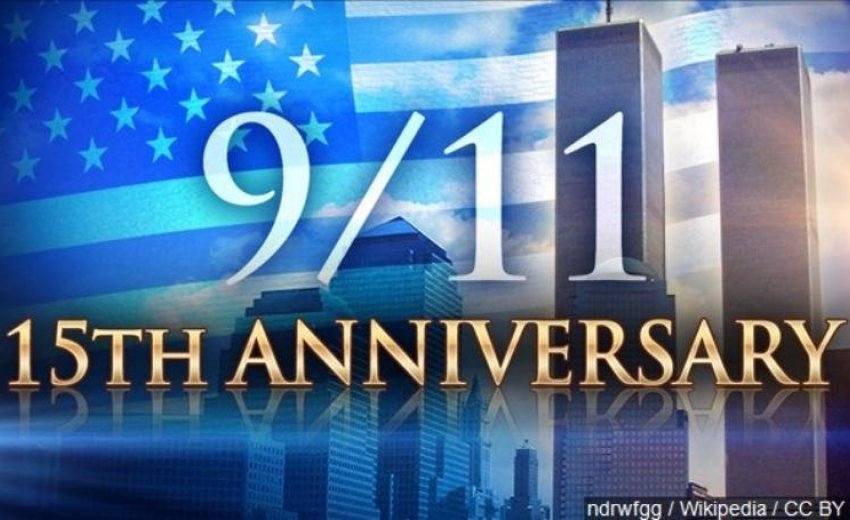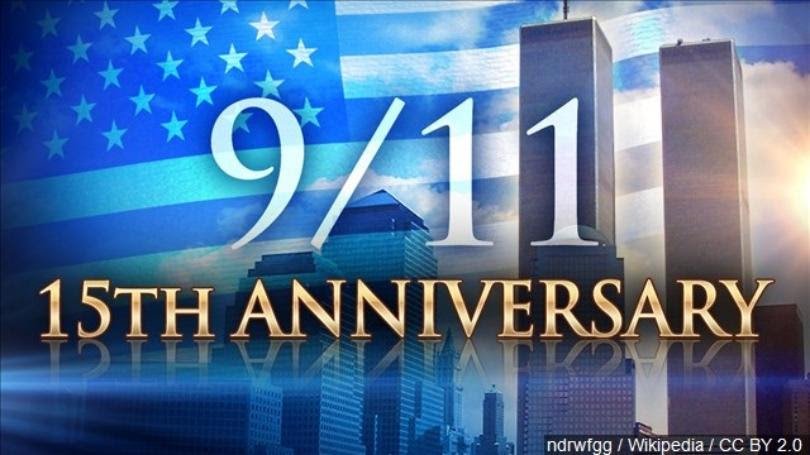| ||
|
We share the pain caused by these events, even after fifteen years, and UNITED SIKHS, an organization that was formed in 1999 to assist immigrant taxi drivers in New York City, suddenly found itself advocating for the Sikh community because the after-effects of 9/11 have impacted the community in ways no one ever predicted. | ||
|
Today, the question "Where were you on September 11th?" is probably being asked less and less, not because the experience or the victims have been forgotten, but because the grief of talking about it still makes your throat swell and your eyes water. It's been that long since that bright, sunny, Tuesday morning when two planes took down the World Trade Center; when the cranes worked for days and nights, since a piece of one of the Towers looked like a mangled hand reaching from the ground up at the dusty sky and since the charred remains of abandoned cars sat at the light on the north side of the site. | ||
|
For all of us, but especially those who were there, at ground zero, and managed by grace to escape with their lives, or for those who lost loved ones, 9/11 may still feel like a lump of coal in the throat. You carry it with you-always. You may have witnessed the hundreds of people migrating across the bridges, the dust, the visual and audio assault from the television or the radio repeating the same "THE TOWERS HAVE BEEN HIT." You may have seen the video of the man, who to escape the inferno, leaped from a window and plummeted downward, the video set to slow motion. You didn't know who that man was but you wished against odds that he would make it- every time. Is it because you or a friend who was there, close to those Towers, made it? If you could, you'd realize how fortunate you were. But no one was really lucky that day. | ||
|
For the Sikh and Muslim communities who have experienced hate crimes and bullying as a result of that day fifteen years ago, the question on the anniversary of that infamous day is also "what's happened to you since 9/11?" Today, as the anniversary of the attacks approaches, the experiences are as real as the five inches of dust that covered downtown Manhattan days after the attacks. Even after fifteen years, these communities feel the devastating effects. They may continue to do so for decades to come unless there is recognition that it is happening; unless our political leaders lead and acknowledge that innocent people are being harmed. | ||
|
Ask a Sikh for example "what's happened to you since 9/11" and the likely answer may be a story about the horrors and indignities that average, everyday people are living. To the family of Balbir Singh Sodhi his murder soon after 9/11 is the worst. His murder is seen as retaliation visited on an unsuspecting Sikh religious man in a gas station far from the events. The 2012 Wisconsin massacre of innocent Sikhs at a gurdwara (place of worship) also comes to mind as some of the worst. | ||
|
Last month, a Sikh man from Los Angeles told UNITED SIKHS that he went to an emergency room in excruciating pain, and in fear for his bodily integrity. After hours of agonizing and waiting, with no opportunity to see a doctor, he was forcefully escorted, sick, out of the emergency room. The nurse had only to say "get this Muslim out of here" to convince the hospital's security guards that it was the right and humane way to treat a human being who had come to them in dire need of help. "It reminds us that the impact of the events of 9/11 are still being felt by some today," states Jaspreet Kaur, an attorney with UNITED SIKHS, International Civil & Human Rights Advocacy (ICHRA). | ||
|
There are stories about how young Sikh men travelled to Chicago from New York to visit the windy city and were denied entry to a club because they could not remove their turbans. Children are bullied in schools because, to their peers, they resemble a stereotype directly linked to the horrors of 9/11. "The education system in the United States has not caught up with the realities of what students have to confront. Diversity is not celebrated. Our children suffer when to deter bullying the response is to punish rather than teach the offending child," states Manvinder Singh, Director at UNITED SIKHS. "That's changing, but very slowly." | ||
|
UNITED SIKHS' lawyers respond daily to request for help from the community. Staff meets regularly with government officials to advocate for change and there are legal clinics starting in the community to assist. | ||
|
"The problem is not just in the schools," says Jaspreet Kaur. "There are judges who ignore the importance of our religious and constitutional freedoms when a parent who pleads to be allowed to raise his only son as a Sikh is not worthy of being heard. There is an immense problem when people in law enforcement, entertainment parks, international cruiseliners and the courts in this day and age still do not know what a Sikh is," states Ms. Kaur. "In order to be safe and or continue to practice the religion of their forefathers, Sikhs should not be forced to choose to forego the freedoms and opportunities for self-realization this country promises in its laws and constitutions, as many have had to do, in many respects, as a direct result of the events of 9/11." | ||
|
In the years to come, because of the work UNITED SIKHS is doing, we may not have to regret looking back. Hate crimes and bullying will not define us and we can begin to heal as we remember that all people deserve dignity, respect and opportunity. |
------------------------------------------------------------------
Through my hospital conference room window in Brooklyn, I stared across the East River as the Twin Towers burned. I had just completed the overnight call as a surgical resident, but I was about to become one of the very first responders on September 11, 2001.
I was originally sent to provide medical support at a nearby trauma center, but when no victims arrived, I volunteered to relocate to the center at Ground Zero. I helped set up a triage center for survivors to potentially operate on those who required surgery, but as the dark day transitioned into night, the heavy reality set in -- there were not very many survivors to take care of.
I had seen severe trauma before and I have seen trauma since, but what I saw that day haunts me forever.
After 48 straight hours on the job, I finally got back to my Manhattan apartment to sleep. I hadn’t seen the news and I hadn’t had time to process the implications.
The next day, I walked into my local photo shop and upon seeing my turban and beard, the man behind the counter told me, “For you people, it’s going to cost five hundred dollars,” to have my photos produced.
For the next several days, my roommate accompanied me whenever I went out at night. I was not scared, but for the first time in my life, it became frighteningly clear to me that America didn’t know who I was.
At the same time, just blocks away from Ground Zero, Sikh leaders were already activating a response. Within days, the Sikh Coalition was launched to provide legal resources and support to our community in crisis.

15 years later, the Sikh Coalition has built a reputation as a fearless watchdog for our civil rights. From education, racial profiling, hate crimes, workplace discrimination and school bullying, where would we be today without the Sikh Coalition? What would the Sikh American experience look like without this institution fighting for our rights?
I think about that often, and I worry that we’re still not doing enough as a community to guarantee that this institution keeps growing. As the Sikh Coalition commemorates their 15th anniversary this week, I urge you to remember our milestones and the collective imprint that their body of work has had on every one of us.
As a 9/11 responder, many viewed my work that day as heroic. However, I view the work that has been done since by organizations like the Sikh Coalition to be the true definition of heroism. These people pour their hearts and souls into fighting for your rights and they do it at the cost of giving up lucrative careers in other fields. That’s the definition of seva. That’s the definition of sacrifice.
Dr. Navinderdeep Singh Nijher
Navinderdeep has been a Sikh Coalition supporter since the organizational founding in 2001. He is a plastic surgeon, who lives in Florida with his wife and three young children.

